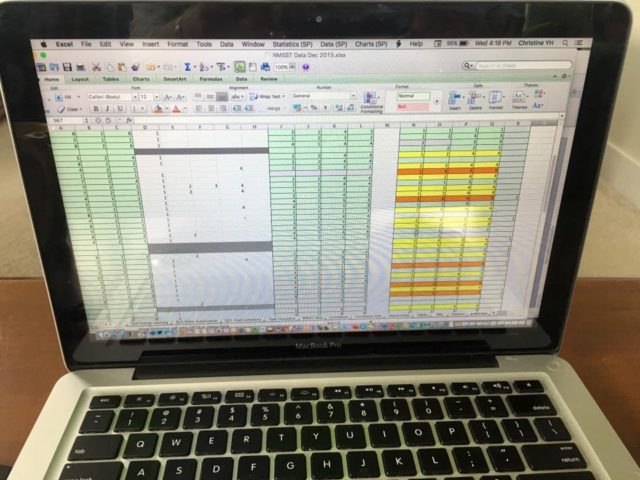Data Denial

My “final draft” of my dissertation is in the hands of my committee and I hope to receive feedback by the end of this week so that I can make the appropriate revisions to get to my next “final draft.” Yes, I am still in the process but nearing the end. I can see the next steps as I approach the oral defence. Redraft the dissertation to a level of readiness so that I can send it to an external examiner. Receive their feedback and make the appropriate revisions to get to another “final draft” to get to a place of defending my dissertation and inviting another internal/external examiner to be part of my examining committee. Yes… the end is near and I can’t wait.
I am happy to learn that my committee has taken the next step to provide feedback on all 5 chapters. I spent many hours with my editor “learning how to write” or rewrite my dissertation to have it at a place where my committee can read through my dissertation. As mentioned in previous blogs, reading and writing are not my strengths, but I am getting better at it. This takes time, effort, and patience. My editor was awesome. She is a former colleague and classmate of mine. Because I am literary-phobic, I needed to work with someone whom I trusted and respected as well as someone who would be willing to tell me the goods without glossing it up with kindness. Well, I got that. She showed me patterns in my writing that I would not have recognized and she never hesitated to ask me questions to get clarification. She knew my learning and thinking preferences and played them well. Thank you Audrey.
Aside from honing down my research question, determining my methodology, and the reading and writing process, another thing that contributed to the lengthiness of my dissertation process was the data analysis. I loved spending time making and designing an online survey instrument that would collect data to answer my research question and sub-questions. This took a lot of time. I had to change platforms and underwent two pilot tests to ensure that my survey instrument would do what it was suppose to do. Distributing the survey was more difficult than I imagined. There was no incentive to participate except to help me and contribute to my study. That was a bit disheartening. The next step was the “dreaded” data analysis. I say that, I but enjoyed this process the most. I loved making meaning from numbers.
I had to learn statistics on the fly. Can math get any more fun that that? I had to learn math with a purpose. I loved playing with the numbers and calculating outcomes with hopes of finding something meaningful or unusual. Of course, I would have loved to have taken a course on statistical analysis so that I could get a deeper understanding of the mathematics that gave me the numbers I derived, but I loved trying to find ways to make a story from the numbers. Throughout my doctoral candidacy I wanted to write a narrative. I thought that this would have been a qualitative study. To my surprise, my descriptive quantitative study has led to a story to tell. What I can say is, what you will see in the “final draft” of the dissertation does not compare to the kind of analysis and calculations undergone to get to that final product.
Not to disclose any of my findings in this blog entry until my dissertation is truly finalized, I was held back a bit with what I found. Yes, I answered my research question and sub-questions with the data collected in the univariate analysis. I found other things too in the bivariate analysis. Even with all this data that led to one particular direction, I was resistant to accepting what I found. Much of what I found is already known by practitioners. For some reason, I wanted my findings to say something different. That’s one thing about doing a research question that you are so invested in as a practitioner, it’s can be challenging to step aside and look at the data objectively as a researcher. Now thinking about it, the major findings of my study accentuates what is already known in practice, but now I have data to verify it.
Once I let go of what I thought I should have expected from the data and allowing the data to speak its truth, I am so happy with my findings and hope that it will contribute to the greater body of knowledge in education. The dissertation process was a struggle but it was also a place where I was able to find joy and purpose. I had always believed that I was terrible at reading and writing and never thought I could be where I am today. Without perseverance, grit, and determination… I would not be completing my dissertation and doing something that required very little reading and writing. In return, the dissertation has taught me that anything is possible, if you want it. The dissertation has also taught me how to discipline my thinking process and how to look at data with an open mind and open heart so that I can hear its story.